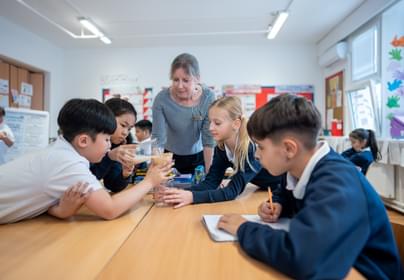As a school, we are monitoring the Coronavirus situation very closely, together with Orbital Education.
Our vigilance and the rigour of our procedures remain at the highest level, aligned with World Health Organisation and local authority guidelines. We will communicate updates with our parents regularly.
You may find the following information and links useful:
- COVID-19: guidance for educational settings
- Wuhan novel coronavirus
- Wuhan novel coronavirus information for the public
- Advice for public
Additional information about COVID-19 can be found here:
Protect yourself and others from getting sick:
- Regularly and thoroughly clean your hands with an alcohol-based hand rub or wash them with soap and water.
Why? Washing your hands with soap and water or using alcohol-based hand rub kills viruses that may be on your hands. - Maintain at least 1 metre distance between yourself and anyone who is coughing or sneezing.
Why? When someone coughs or sneezes they spray small liquid droplets from their nose or mouth which may contain virus. If you are too close, you can breathe in the droplets, including the COVID-19 virus if the person coughing has the disease. - Avoid touching eyes, nose and mouth.
Why? Hands touch many surfaces and can pick up viruses. Once contaminated, hands can transfer the virus to your eyes, nose or mouth. From there, the virus can enter your body and can make you sick. - Make sure you, and the people around you, follow good respiratory hygiene. This means covering your mouth and nose with your bent elbow or tissue when you cough or sneeze. Then dispose of the used tissue immediately.
Why? Droplets spread virus. By following good respiratory hygiene you protect the people around you from viruses such as cold, flu and COVID-19. - Stay home if you feel unwell. If you have a fever, cough and difficulty breathing, seek medical attention and call in advance. Follow the directions of the local health authority.
Why? National and local authorities will have the most up to date information on the situation in your area. Calling in advance will allow your health care provider to quickly direct you to the right health facility. This will also protect you and help prevent spread of viruses and other infections. - Keep up to date on the latest COVID-19 hotspots (cities or local areas where COVID-19 is spreading widely). If possible, avoid travelling – especially if you are an older person or have diabetes, heart or lung disease.
Why? You have a higher chance of catching COVID-19 in one of these areas.
Symptoms
If you show any of the following symptoms please seek medical advice immediately.
The most common symptoms of COVID-19 are fever, tiredness, dry cough, difficulty breathing. Some patients may have aches and pains, nasal congestion, runny nose, sore throat or diarrhoea.
Older people, and those with underlying medical problems like high blood pressure, heart problems or diabetes, are more likely to develop serious illness.
It is suggested that the incubation period of the coronavirus is between 10 to 14 days.
Instructions by the Government of Hungary
At a joint press conference with the Coronavirus Operational Group, Gergely Gulyás, the Minister heading the Prime Minister's Office, has announced that the Hungarian Government has ordered a state of emergency on March 11, 2020.
The government has sent up an official website with a regularly updated feed of the latest information about Coronavirus in Hungary. A version of the site is also available in English.
The call centre set up for questions and information on the coronavirus can be reached at +36 80 277 455 and +36 80 277 456 from within Hungary or by email under koronavirus@bm.gov.hu.
The government asks anyone who believes that they may be infected with the virus not to see a doctor in person, but to phone their general practitioner or contact the special helpline above.



